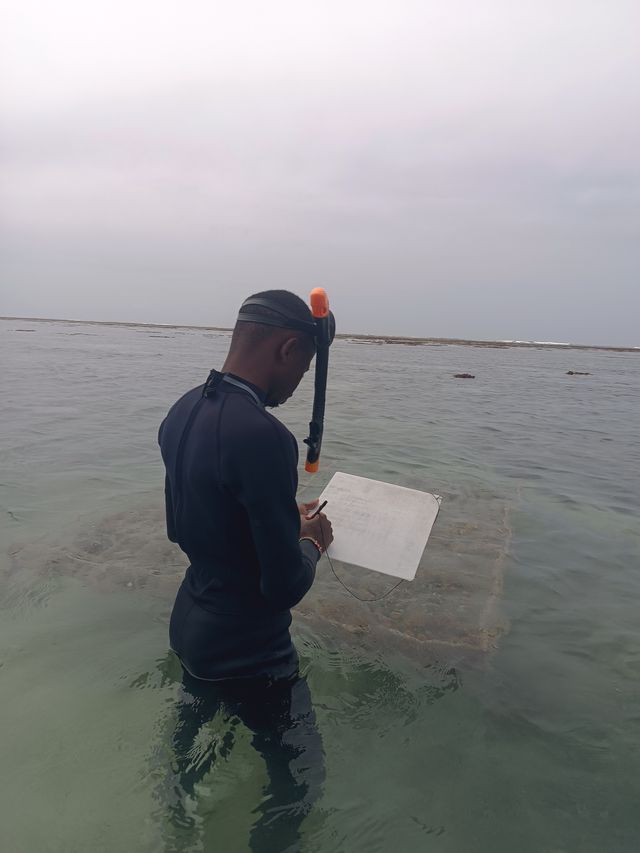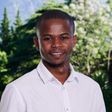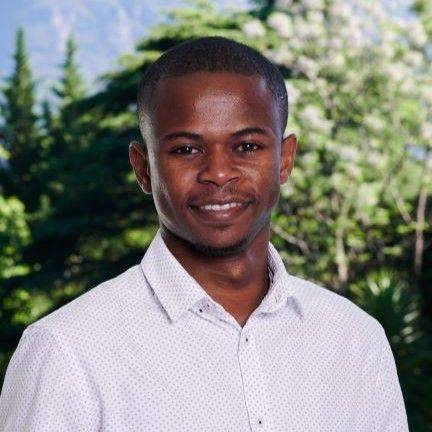
Scholar Stories
Cissé Oumar on why it's important to celebrate World Oceans Day
Cissé Oumar (Mauritania & University of the Witwatersrand, 2024) believes that resilience begins at the intersection of ecosystems and livelihoods. Whether restoring mangroves in Kenya or advocating for small-scale fishers in West Africa, he is helping shape an ocean future that works for everyone.
On the 8th of June, all corners of the globe celebrated the UN World Oceans Day. Why is it important for us to commemorate this day?
World Oceans Day is more than a symbolic celebration—it’s a call to action. Oceans regulate our climate, provide food and livelihoods for millions, and hold deep cultural meaning for countless communities. For me, it’s a reminder of how interconnected we are with the ocean, no matter where we come from. Especially as someone from West Africa, a region deeply tied to the sea, it's a moment to reflect on both the beauty and the urgent challenges facing our marine ecosystems.
You are currently completing your master’s degree in environmental science focusing on building environmental resilience—how does that research intersect with the broader ocean ecosystem?
My thesis is centered on the health ecosystem assessment of mangrove forests in Tudor Creek, Mombasa County, Kenya. Mangroves are essential to coastal protection and blue carbon sequestration, but they are increasingly threatened by logging, pollution, and urban expansion. My work involves evaluating the ecological health of these mangroves and understanding the socio-economic drivers behind their degradation. By combining field data with community engagement, I hope to support sustainable restoration practices that benefit both people and the planet. It’s a project that reminds me that resilience starts at the intersection of ecosystems and livelihoods.
What are the most urgent threats facing our oceans today?
The most pressing threats include overfishing, pollution (especially plastics and industrial runoff), habitat destruction, and the accelerating impacts of climate change such as ocean warming and acidification. In West Africa, the unchecked expansion of industrial fishing—often through opaque foreign agreements—has pushed small-scale fishers to the margins. This not only threatens biodiversity, but also food security and coastal livelihoods.
What has been the most memorable project that you worked on in the ocean?
The most memorable project I worked on in the ocean was during my time with Oceans Alive Kenya, where I conducted field research on the effectiveness of terracotta clay as a substrate for artificial reefs. This experience combined scientific experimentation with real-world application, as I collaborated with local women in Kilifi to source and process clay, conducted underwater monitoring, and analyzed reef survivorship data. It was deeply rewarding to contribute to a project that not only explored sustainable reef restoration but also engaged the local community and offered insights into low-cost, ecologically sound conservation practices. The blend of science, impact, and community made it truly unforgettable.
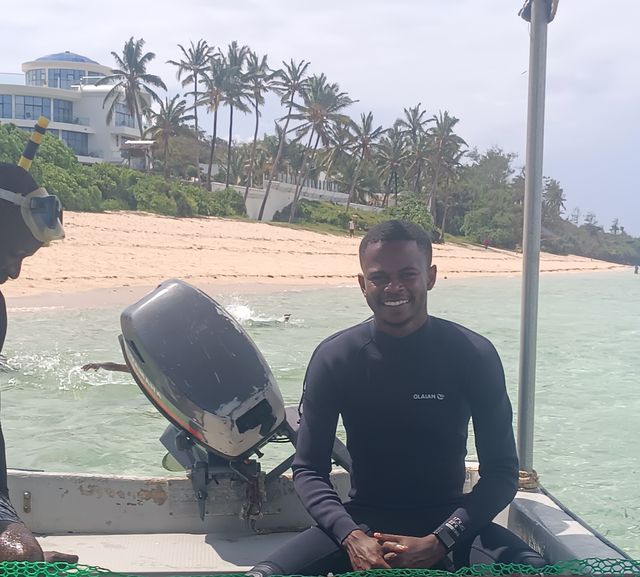
Tell us a little bit about your journey as a Mandela Rhodes Scholar and why you applied for the scholarship.
I applied to the Mandela Rhodes Scholarship because I was craving a space that combined leadership, purpose, and pan-African community. Becoming the first scholar from Mauritania wasn’t just a milestone—it was a moment of possibility. That year was deeply introspective. I learned that leadership isn’t about titles or speed—it’s about heart, reflection, and integrity. Also, our cohort had some epic debates and dance sessions—because growth should have joy too!
Mauritania’s coastline is unique—what specific threats are there to the coastline and how can we address them?
Mauritania’s coastline faces increasing pressure from sea level rise, erosion, and the overexploitation of fisheries. Industrial fleets have pushed marine resources to the brink in some areas. To address this, we need stronger marine governance that centers transparency, equity, and local stewardship. Restoration of coastal ecosystems like mangroves, alongside better enforcement and sustainable fishing policies, can offer a path forward.
Community engagement is key to lasting impact—what strategies have you found most effective when mobilizing local stakeholders? Listening first is everything. People know their environments best, and real impact starts when we create space for community voices to lead. In my work, I’ve found that co-designing solutions—whether it’s through participatory mapping, community workshops, or youth-led restoration projects—builds trust and ownership. It's not about coming in with all the answers, but about creating frameworks where solutions can emerge locally.
Mauritania’s economy is based on agriculture and fishing—how do you balance the needs of the people and sustainability?
Sustainability can't come at the cost of survival. The key is to design systems that make sustainability work for people, not against them. That might mean supporting fishers with better storage and processing equipment, enabling them to reduce waste and increase profits, or investing in agroecological methods that restore land while improving yields. It’s about aligning environmental goals with human dignity and opportunity.
When was your last diving expedition and what does it feel like to be in the belly of the ocean?
My last dive was during a coastal survey project in Kenya. Being underwater feels like entering a different world—quiet, expansive, humbling. It reminds me how small we are in the grand scheme of things, and how vital it is to protect that world, not just for us, but for all life that depends on it.
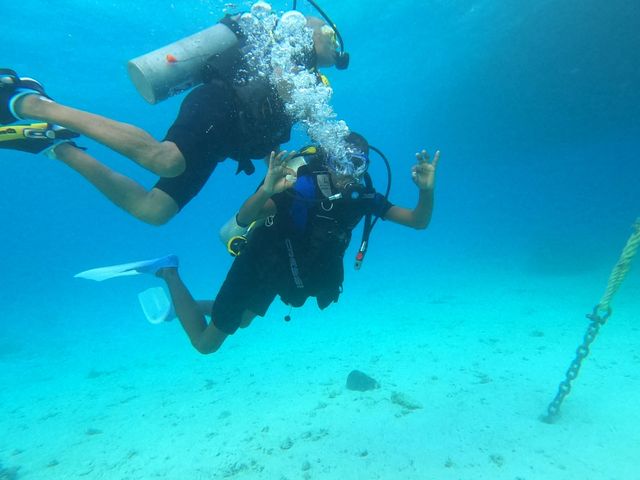
What’s your vision for the future for the West African coastline?
I envision a West African coastline where coastal communities are not just surviving, but thriving. Where small-scale fishers are recognized as stewards of the sea, where mangroves are restored and protected, and where the youth see a future for themselves in ocean stewardship and innovation. A future where traditional knowledge and modern science work hand in hand to build resilience against climate change.
You were the first in your country to become a Mandela Rhodes Scholar—what would you say was your key takeaway after spending a year in South Africa?
Being the first Mandela Rhodes Scholar from Mauritania was a deeply humbling experience. My biggest takeaway was the value of reflection in leadership. The Mandela Rhodes experience pushed me to slow down and ask deeper questions—about justice, legacy, and the kind of leader I want to be. It reminded me that impact is not just about doing more, but about doing with intention. That leadership, at its core, is about service—and that who we are shapes how we lead.
What’s next on the horizon for you?
After completing my graduate studies, I’m aiming to return to Africa to continue supporting community-driven climate adaptation and marine conservation efforts. I also hope to expand my work in policy advocacy—helping bridge the gap between local realities and regional decision-making, especially around coastal resilience and sustainable blue economies.
